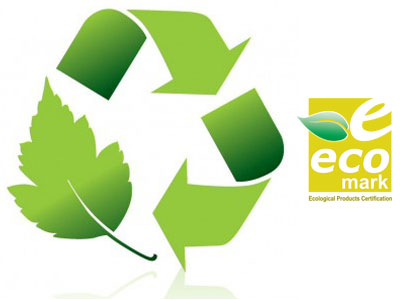The rapid rise in the world population, as well as the industrialization which is developed without supervision and unconscious, creates serious problems in human and environmental health. One of these problems is the widespread use of a wide range of chemicals to achieve production growth in agriculture. Indeed, this application increases agricultural productivity, but on the other hand, the residues left by the synthetic chemicals used in agricultural products, as well as the interferences of synthetic mineral fertilizers with the groundwater, and thus the negative effects of the drinking water on these waters, poses a great threat to the health of people.
In this situation, especially in developed countries with high income levels and in many other countries, the number of conscious consumers is increasing and they are demanding and consuming foodstuffs that do not harm natural equilibrium and do not endanger the health of people and other living things.
In fact, our country has a very important position in the world in terms of its geographical structure and natural assets. It is one of the few countries in terms of plant gene resources.
With the definition of science, ecological agriculture, or organic agriculture activities as stated by the people, are determined by the legal regulations in our country and the production works are audited by independent and independent auditing and certification bodies.
Today, organic agricultural products have become an increasing demand in parallel with the awareness of people around the world and the market share is growing very rapidly. Some limitations are imposed on the excessive use of agricultural inputs such as synthetic mineral fertilizers or synthetic chemical pesticides, which increase production.
In this method, which is defined as traditional agriculture, although agricultural production provides a certain level of increase, it creates serious pollution and the ecological balance of nature is destroyed. Therefore, it has been important to produce clean products that do not disrupt the natural balance, do not pollute the environment and do not threaten the health of people and other living things. Ecological agriculture is a production system that targets them.
Ecological agriculture is a form of production adopted by the Food and Agriculture Organization (FAO) and the European Union countries as an alternative to traditional agricultural production. Ecological agriculture is also known as biological agriculture or organic farming in various countries. In our country, ecological agriculture is used in legal regulations.
In short, ecological agriculture is an alternative way of production that aims to achieve:
- To reestablish the deterioration of the natural balance as a result of misuse of the ecological system
- To spread production systems that are friendly to people and natural environment
- Preventing the use of synthetic chemical pesticides, mineral fertilizers and hormones in general
- Organic and green fertilization in agricultural activities, alternation, plant protection, soil protection, plant resistance and natural enemies to take advantage of methods
- To increase not only quantity increase in production but also product quality
In case of production in accordance with these purposes Awareness of nature conservation and businesses and consumers, food production, consumption and waste during the stages of the environment, gives more importance to the negative effects on the environment. Control and certification studies are also effective in the presentation of food products produced by ecological production methods to the markets. Consumers rely more on labels on products produced by ecological methods.
In this respect, TÜRCERT Technical Control and Certification Inc. ECOmark, taking into account the conditions of our country, based on the certification studies of ecological products Ecological Product has developed the standard. Products bearing the ECOmark label allow consumers to focus more on these products.
The ECOmark standard creates a sense of confidence for consumers not only for the ecological products to be sent to the European Union countries, but also for the products to be sent all over the world.



